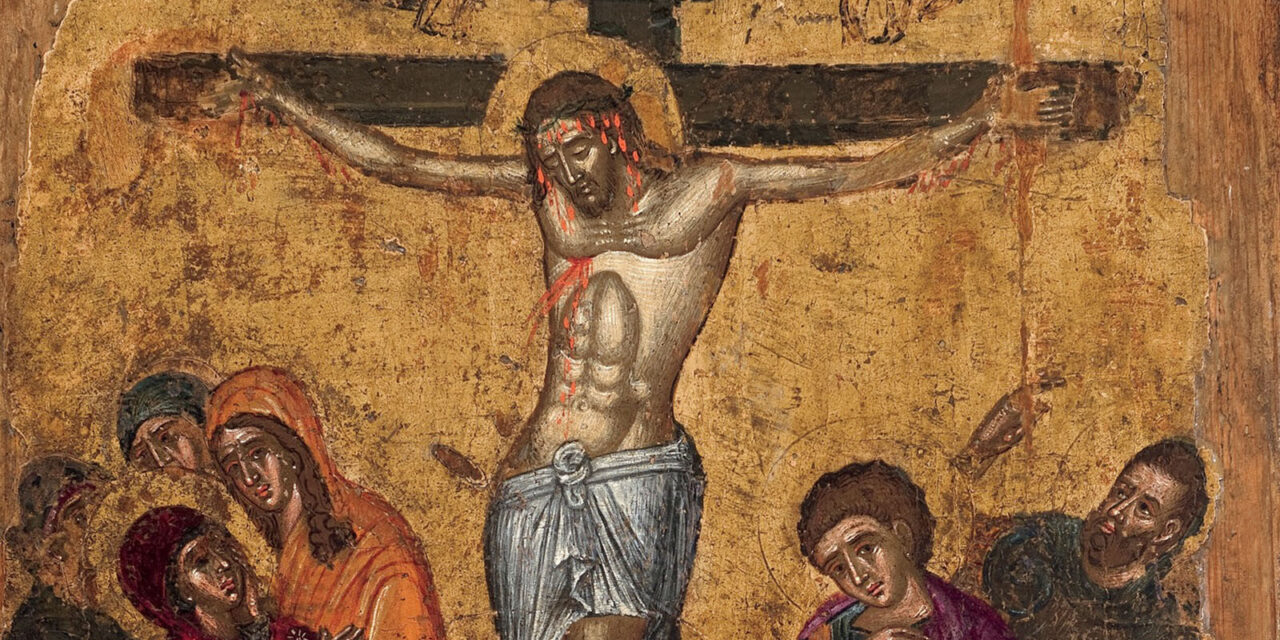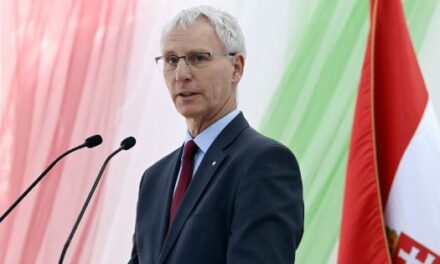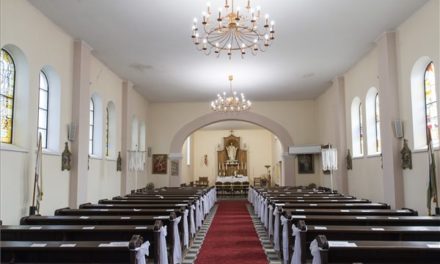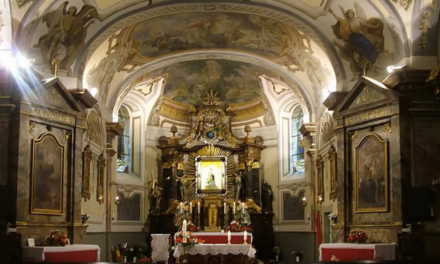Our first and last possible actions are prayer and sacrifice.
Now show your faith in actions, since faith without actions is dead (Galatians 5:22). And this was true not only in the time of the apostle Paul, but also today. When we stand almost paralyzed at the sight of hellishly inhumane events, and we hardly ask: how is this possible?
Because it is possible, because evil has no lower limit. Just as goodness has no upper limit. I will not enumerate the horrors committed by the illogicality of the army of evil, the ruler of the world. Everyone knows.
But we must talk about acts of goodness that are possible even in the midst of impossibilities.
After all, it is a living and eloquent proof of the logic and power of the Christian faith that when we have run out of words, when fierce opponents no longer want to talk to each other because they are on a life-or-death battle, if everything is left to the conflict-inducing logic of weapons, even then there is also a positive step. Two to be exact.
The prima et ultima ratio - oratio - is our first and last act - prayer is the Christian path followed since Christ. And in the Old Testament, it is the path of faith practiced by the first worshipers, since Abraham. The logic and even hourly practice of say a prayer. When only the words of prayer can come together into human self-expression.
And there is also the logic of the sacrificial act. As the Catholic Patriarch of Jerusalem, Cardinal Pierbattista Pizzaballa, gave a poignantly true and appropriate example in these hellish days. With what? By declaring on Oct. 16, “I'm willing to trade, anything, if it leads to freedom to bring the kids home. I am fully willing to do so."
Beyond the ancient moral minimum, according to the measure of Christ
As soon as the events that took place on October 7, Black Saturday, became known, the conscience of people around the world was stirred. Christian and non-Christian. Pope Francis has repeatedly called for prayers for those suffering on both sides. And for the decision makers.
We have really come to the point where today the world can be divided into two parts as a result of dramatic imperatives: the camp of the forces of darkness and the forces of light, the camp of those who mistreat others for their own interests, and the world community of savable humanity, of those who act humanely with others, who in Kant's ethical yielding to the imperative, their conscience or the command of their religion or faith, they do not do evil to others that they do not wish for themselves.
Or to put it positively: they do the good for others that they expect for themselves.
Although this is still the way of the ancient ethical minimum, do ut des, the ethical minimum is I give to give, I am good to you so you can be good to me. But today we have come to the point that many times, more and more often, this ancient minimum must be considered a situational maximum.
But not even this can be observed by many.
Then we wouldn't have gotten into this situation. The ethical standard and reality of Jesus of Nazareth, who undertook self-sacrifice, is a starlight year away from this humane ethical minimum. The attitude of love your neighbor as your own norm and the attitude of if you are slapped in the face, keep your other half there are almost dying out. The life practice of truly following Christ, the imitatio Christi of the Middle Ages, of Thomas Kempis or Francis of Assisi.
How much this would be necessary, we can see now. It is certainly the case that norms and principles can diverge very far from each other.
But there is someone, the living Jesus Christ, who is there even in these hours of explosions and flashes among the Christian Palestinians who make up a large part of Gaza, and among the peoples of the homeland of Golgotha and Gethsemane, in connection with whom in these hours he receives a transparent emphasis, a conspicuous confirmation to heaven a cool thing Jesus did, or recalling it.
The last act on earth that Luke wrote about: "While he was blessing them, he departed from them and was taken up into heaven" (Luke 24:51). When he blessed not only his disciples with the last, visible good deed of his life, but the whole earth, his birth, his redemptive work, his cross and empty tomb, his homeland, the homeland of his earthly statelessness.
From the blessings of the raised, even scarred, blessing hand of his figure disappearing into the blue azure, he received enough for his people, and even for his enemies, regarding whom he pleaded on the cross: "Father, forgive them, for they know not what they do!" (Luke 23:34). And everything that is above this is from the evil one. And those who want to stand out and intimidate others with their infernal deeds will lose their worthy "reward" and be cast into outer darkness, which will be the deserved reward of their inner darkness...
Voluntary prayer alliance, prayer coalition - Seven requests for Israel and Gaza
It is a cause for gratitude that many millions of Christian believers, even as Palestinians or Christ-followers living in Israel, are not paralyzed by the sight of horrors. We can and should strengthen them, and together with them, with voluntary, individual or organized prayer actions. With a prayer alliance. One form of this that can be quickly and effectively followed is what the OpenDoors organization, which has been monitoring the persecution of Christians for decades, published on its website. Let's get to know them and try to incorporate these aspects into our prayers.
1. Let us pray for the Israeli families who are in despair or in deep mourning because their loved ones were killed or taken hostage.
2. Let us pray for the people of Gaza, believers and non-believers, caught between two fires in the terrible conflict.
3. We ask God to protect, protect and preserve innocent people, children, the elderly and the sick in this war conflict.
4. Let us pray that even in this situation God can draw to Himself those who did not know Him until now, or even if they did, they were not in a living relationship with Him. In the Italian Bible reading guide of the Roman Catholic Church, we read this sentence in this connection today: Tu sei il mio rifugio, Signore - Lord, You are my refuge!
5. Let us pray for those who were driven from their homes or had to flee from the destroyed homes, so that they can find temporary accommodation and food, even if in tents, and be able to return to their original homes.
6. Let us pray for church and humanitarian aid organizations, for people of good will, for unity among all people who love God and are of good will.
7. Let us pray for peace, without which there is no future, and for the pro-life, survival-working decisions of those who act in conflict, individuals, governments, churches, and religions.
Dr. Lajos Békefy












